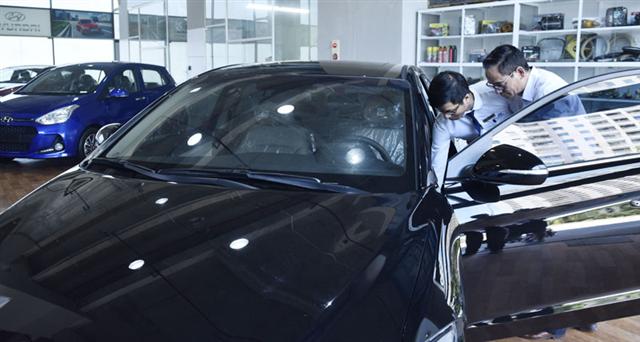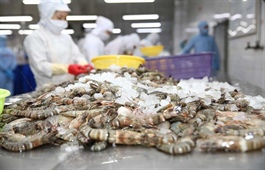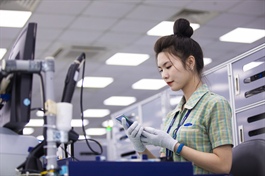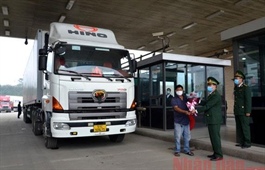Vietnam leading car dealers struggle with Covid-19 impacts
Vietnam leading car dealers struggle with Covid-19 impacts
While car prices in 2020 were significantly lower compared to the pre-Covid-19 period, customers had become more cautious in spending, leading to an 8% year-on-year drop in car sales to 296,634 units.
Major car dealers in Vietnam, including Savico, Haxaco and City Auto, posted modest return on sales (ROS) of 1-2% in 2020, mainly due to customers tightening their belt amid a difficult Covid-19 year.

Customers at a car dealer center in Le Van Luong street. Photo: Pham Hung
|
“The pandemic had led to fierce competition in car prices, causing a downturn in the company’s business performance,” stated Savico in its financial statement.
Savico, a distributor of major car brands of Toyota, Volvo, Honda, Mitsubishi, recorded the highest revenue among the three with VND16.13 trillion (US$700.2 million), down 12% year-on-year, and profit of VND224 billion (US$9.72 million), or ROS of 1.38%.
While car prices in 2020 were significantly lower compared to pre-Covid-19 period, customers had become more cautious in spending, leading to an 8% year-on-year drop in car sales to 296,634 units, data from the Vietnam Automobile Manufacturers’ Association (VAMA) noted.
City Auto, a major distributor of Ford and Huyndai, suffered a same fate with a decline of 11% year-on-year in revenue to VND5.67 trillion (US$246.1 million) and net loss of over VND4 billion (US$173,800).
Last year, City Auto predicted a challenging year of 2021 for the automobile industry following a sharp drop in market demand.
In a letter to the Ho Chi Minh City Stock Exchange, City Auto attributed its negative business performance to lower car sales volume.
In contrast, Haxaco, a leading Mercedes-Benz car dealer in Vietnam, recorded a rise of 8% year-on-year in revenue to VND5.57 trillion (US$241.8 million) and after-tax profit of VND125 billion (US$5.42 million), up 150% year-on-year.
A senior official at Haxaco said the firm took advantage of the government's policy of reducing 50% of the registration fee for domestically-produced cars to boost sales revenue. However, Haxaco’s ROS remained at a modest rate of 2.24%.
A study from SSI Securities Corporation suggested 2021 could start the upward trend of Vietnam’s automobile industry with a 16.3% year-on-year growth rate in terms of car sales number, citing high demand from the domestic market for cars.
























